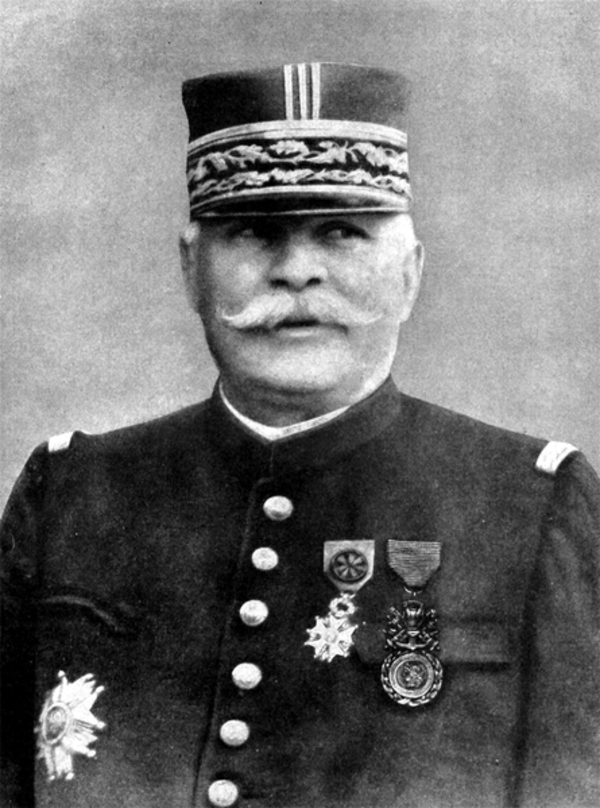Marshal Joseph Joffre
Joseph Joffre was born in 1852 at Riversaltes, which lies in the eastern Pyrenees. He entered the army at the age of 18 and, while still just a cadet, demonstrated his potential as a leader by taking command of a battery during the Paris Uprising. He went on to take per on a number of placement overseas, including in Indo-China and North Africa.
While in North Africa in 1894, he won distinction for leading his men across the North African desert and capturing Timbuktu. This success continued into the next century, when he acted as Director of Engineers and was later appointed Chief of the General Staff. Joffre took this position in 1911, which meant he was a senior officer in the French Army at the time when World War One broke out, in August 1914.

Joffre had already gained a reputation as an offensive rather than a defensive officer, and had replaced his inferiors accordingly. This strategy had helped him stop German advances on Paris and in stemming the advances at the Battle of the Marne. However, he was also known as one of the men responsible for the stalemate of trench warfare, and being unable to develop a strategy to end it.
However Joffre did also gain a reputation for coping well with difficult situations such as the horrors of Verdun, and was nicknamed “Grandpère” by his soldiers. Many historians argue that the areas where he fell down as a commander, such as coping with trench warfare, were similar to those of other military leaders such as Douglas Haig and Erich von Falkenhayn; all three of these commanders went to similar military schools, where the horrors of trench warfare could not have been imagined.
Unfortunately, an otherwise popular Joffre did lose some credibility following his failure to breakthrough at the Battle of the Somme, which he and many others had considered to be the “final push”. In spite of this, Joffre was promoted in December 1916 to Marshal of France and was also appointed president of the Allied War Council in 1917. In the final months of the war, Joffre spent much of his time involved in ceremonial duties, and between 1918 and 1930 he held a variety of posts at the Ministry of War. He died just one year later in 1931.
MLA Citation/Reference
"Marshal Joseph Joffre". HistoryLearning.com. 2026. Web.
